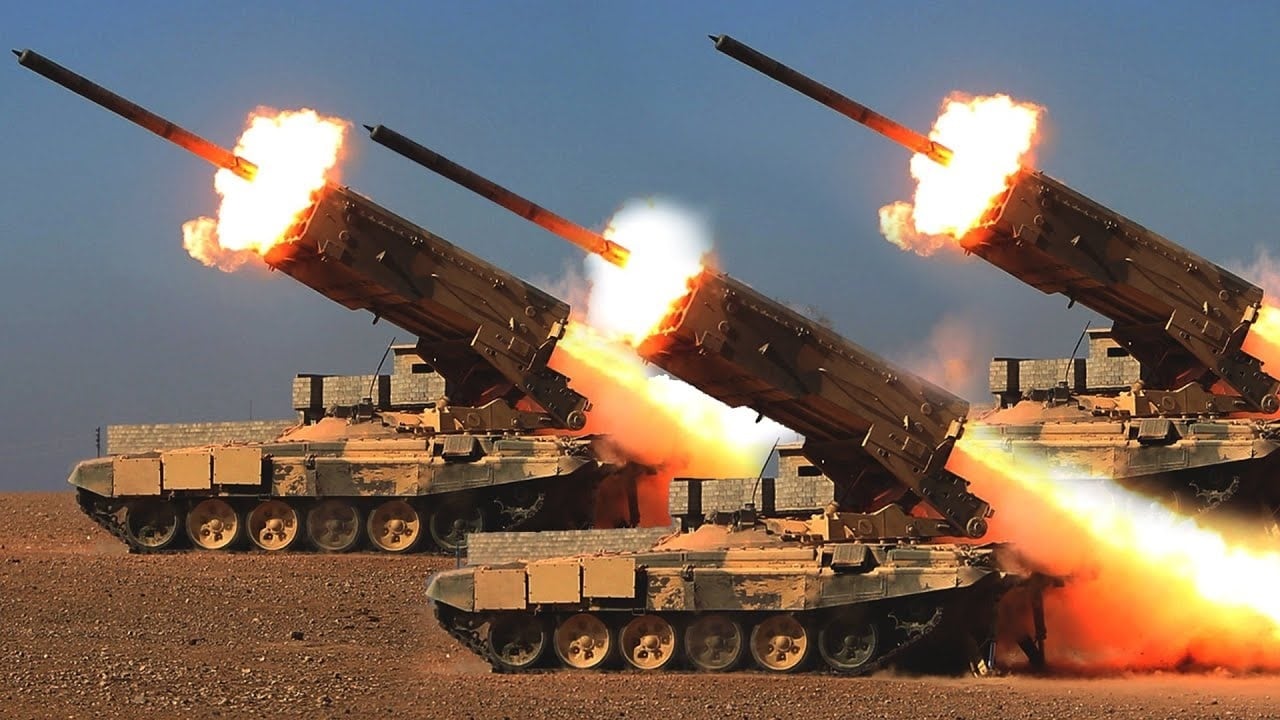This scenario could become a common occurrence during the war in Ukraine. The Russian army fires a howitzer, and the shell goes wildly off course and doesn’t even explode. Russia may be running so low on effective ammunition that they are depending on stocks that are 40 years old and were previously wasting away in warehouses since the end of the Cold War. This old ammo is not doing the job. Russian Multiple Launch Rocket Systems (MLRS) could also be depending on antiquated rockets that are not working as they should.
What if Russia continues to run out of ammunition that works correctly?
Can Russia Keep Up With Ammunition Needs?
A major depletion of shells and rockets could happen as early as January. Russia depended on long-range artillery during the war as both sides attrit each other with big guns and rocket launchers. Russia may not have the industrial base, workers, and expertise to deliver the needed amount of howitzer rounds and rockets.
Ukraine Has Destroyed Ammo Depots
With armored maneuver warfare curtailed because of inclement weather during the winter months, Russia will have to depend on artillery to continue the fight. That means additional shells must get to the front. It hasn’t helped that Ukraine has frequently hit Russian ammunition dumps with HIMARS rockets, and Ukraine’s artillery pieces have degraded Russia’s supply of shells and rockets.
American Intelligence Leaders Believe that Russia Is Running Low
U.S. intelligence officials are warning that Russia is getting dangerously low on this type of ammunition. Director of National Intelligence Avril Haines said recently at the Reagan National Defense Forum in California that Russia is going through shells at a “really pretty extraordinary rate.” They may not have the wherewithal to keep up.
Defective and Inaccurate Howitzer Rounds
Russia may be using ammunition that refuses to fire and gets stuck in the howitzer’s tube or it does fire but does not hit its intended target or even fails to explode. This leaves unexploded ordnance on the battlefield and increases problems for rebuilding and reconstruction after the war for Ukraine.
Try North Korea and Iran for Ammo Supplies
The Kremlin was reportedly dealing with North Korea to supply shells for its army in September. Russia is buying “millions of artillery shells and rockets” from North Korea, according to Newsweek. But it is not clear if ammo supplies from Pyongyang are making it to the front as quickly as needed. Haines said North Korea is not supplying “a lot” at this time. Iran could also be another Russian ally that could send extra howitzer rounds to Ukraine.
Might Belarus Help?
Belarus could also be a source for 152mm and 122mm cannon rounds. But the Kremlin may be at just the beginnings of a deal with Minsk, and it could take into February or March before Belarus could supply the ammunition.
Russia will also have to ramp up production at its domestic ammunition factories. Hiring more employees to staff the facilities may be difficult as so many civilians have been mobilized to serve in the war. They would need to run three shifts 24/7 to keep up with demand.
Russia Must Have Effective Artillery
Much of the recent fighting has consolidated around Donetsk and Russia will need artillery and rocket fire to continue throughout the winter. Moscow will have to ensure it has effective shells and rockets to prosecute counteroffensives in the spring as fighting heats up again. Russia does not maneuver its forces without artillery fire, so its ammunition stocks will be watched closely by American and allied military and civilian intelligence agencies. Until then, Russia will have to endure shortages, and the old shells it is using may not work as they are supposed to, this will only help Ukrainian forces from succumbing to Russian fire. That may make the winter more survivable for the defenders.
Expert Biography: Serving as 19FortyFive’s Defense and National Security Editor, Dr. Brent M. Eastwood is the author of Humans, Machines, and Data: Future Trends in Warfare. He is an Emerging Threats expert and former U.S. Army Infantry officer. You can follow him on Twitter @BMEastwood. He holds a Ph.D. in Political Science and Foreign Policy/ International Relations.

